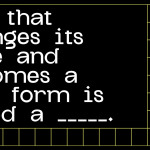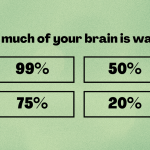According to the WWF, nearly 90% of wild plants and 75% of global crops depend on pollinators like bees . That means that one of every three bites of food we eat are brought to us courtesy of honey bees and friends. But how much do you appreciate the work of these buzzing bees? World Bee Day is a chance to give a hand to our pollinating friends, and in recognition of this holiday we’ve put together a quiz to challenge you to see how much you really know about these hard-working insects:
Quiz: Answer These 12 True Or False Questions About Bees To Prove You’re An Expert Before ‘World Bee Day’
Quiz: Answer These 12 True Or False Questions About Bees To Prove You're An Expert Before 'World Bee Day'
Bees are fascinating insects that play an important role in our ecosystem. They not only produce delicious honey but also help in pollinating plants that contribute to our food sources. But how much do you really know about these busy buzzing creatures? Take this quiz and test your knowledge with these 12 true or false questions about bees before 'World Bee Day'.





